Editor-in-Chief
 Leandro Rodriguez Medina is an Associate Professor at the Department of International Relations and Political Science, Universidad de las Américas Puebla (UDLAP), Mexico. In 2017, he was Paul F. Lazarsfeld Visiting Professor of Social Sciences at Universidad Autónoma Metropolitana-Azcapotzalco, in Mexico City. He has been an Affiliated Researcher at the Sociology Department at the University of Cambridge, as part of the EU-funded research project “International Cooperation in the Social Sciences and Humanities.” He studied political science (BA, Universidad de Belgrano, Argentina), epistemology (MA, Universidad Nacional de Tres de Febrero, Argentina), philosophy (MA, State University of New York at Stony Brook, US), and sociology (PhD, University of Cambridge, UK) before moving to UDLAP in 2009.
Leandro Rodriguez Medina is an Associate Professor at the Department of International Relations and Political Science, Universidad de las Américas Puebla (UDLAP), Mexico. In 2017, he was Paul F. Lazarsfeld Visiting Professor of Social Sciences at Universidad Autónoma Metropolitana-Azcapotzalco, in Mexico City. He has been an Affiliated Researcher at the Sociology Department at the University of Cambridge, as part of the EU-funded research project “International Cooperation in the Social Sciences and Humanities.” He studied political science (BA, Universidad de Belgrano, Argentina), epistemology (MA, Universidad Nacional de Tres de Febrero, Argentina), philosophy (MA, State University of New York at Stony Brook, US), and sociology (PhD, University of Cambridge, UK) before moving to UDLAP in 2009.
Since 2011, he has been a member of the Sistema Nacional de Investigadores – S.N.I.-level II (National System of Researchers, Mexico) at the Consejo Nacional de Ciencia y Tecnología – CONACYT (National Council for Science and Technology, Mexico). Between 2011 and 2014, he was a member of the Governing Council of the Society for the Social Studies of Sciences (4S) and was co-Chair of the 2014 Annual Meeting of 4S, which was held in Buenos Aires, Argentina. He is currently a member of the Publication Committee of 4S.
His current empirical research focuses on the internationalization of the social sciences and on the relationship between culture and urban development.
Associate Editors
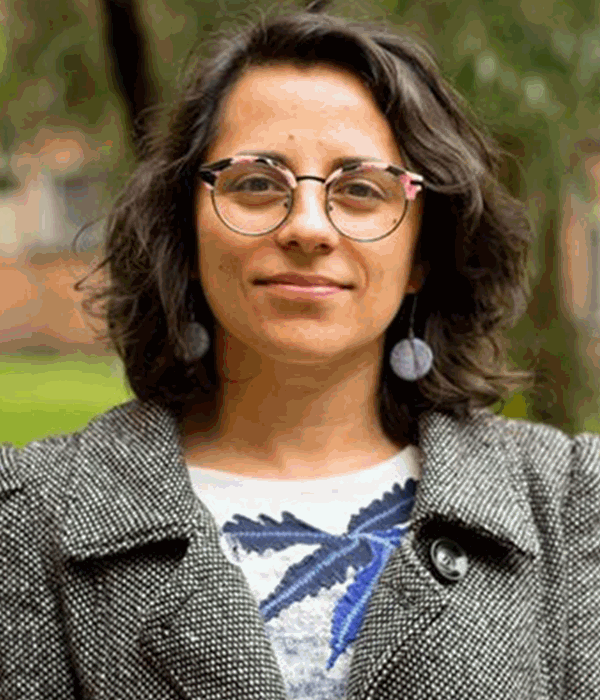 Tania Pérez-Bustos is an Associate Professor in the School of Gender Studies, Universidad Nacional de Colombia (UNAL), Bogota, Colombia. She was Editor-in-Chief of Universitas Humanísitca (journal established in 1975, highly recognized in the region in the humanities). Tania has been part of the boards of the Society for the Social Studies of Science (4S) and the Asociación Latinoamericana de Estudios Sociales de la Ciencia y la Tecnología (ESOCITE). As a Feminist STS scholar, Tania works and publishes, both in Spanish and English, on knowledge dialogues and knowledge making practices that interrelate technoscientific knowledge with popular knowledge of different sorts. She is also interested in processes and practices of feminization of knowledge. Tania is currently doing research on various textile handmade processes as technologies of knowing and caring.
Tania Pérez-Bustos is an Associate Professor in the School of Gender Studies, Universidad Nacional de Colombia (UNAL), Bogota, Colombia. She was Editor-in-Chief of Universitas Humanísitca (journal established in 1975, highly recognized in the region in the humanities). Tania has been part of the boards of the Society for the Social Studies of Science (4S) and the Asociación Latinoamericana de Estudios Sociales de la Ciencia y la Tecnología (ESOCITE). As a Feminist STS scholar, Tania works and publishes, both in Spanish and English, on knowledge dialogues and knowledge making practices that interrelate technoscientific knowledge with popular knowledge of different sorts. She is also interested in processes and practices of feminization of knowledge. Tania is currently doing research on various textile handmade processes as technologies of knowing and caring.
Tania has a BA in Anthropology and another one in Communication Studies, a MA in Development Studies and a PhD in Education. She describes herself as a self-taught and undisciplined STS Scholar from the Global South.
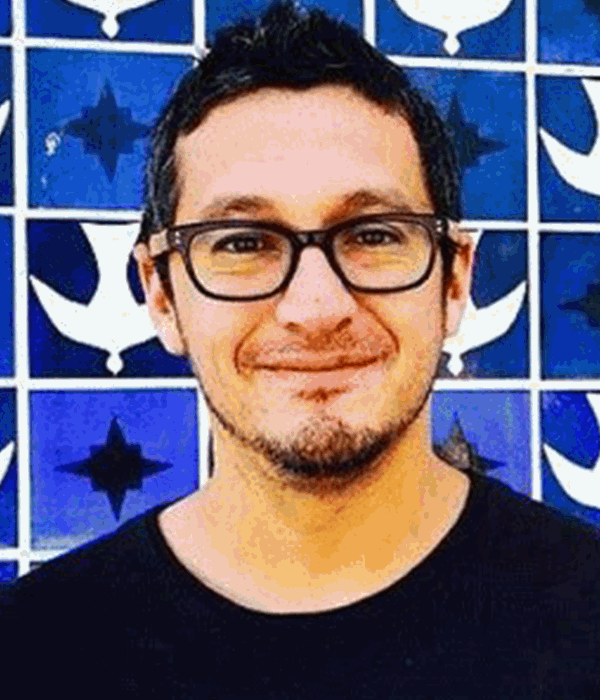 Luis Reyes-Galindo is an Honorary Research Fellow at Cardiff University’s School of Social Sciences. Luis has held research and teaching positions in Mexico, the UK and Brazil, including a prestigious British Academy Post Doctoral Fellowship at Cardiff. He is a member of the Sistema Nacional de Investigadores – S.N.I. level 1 (National System of Researchers, Mexico) and a winner of the J. M. Lozano medal from the Institute of Physics, Universidad Nacional Autónoma de México (UNAM) for his undergraduate physics work. He has published in major international journals on the socio-cultural world of theoretical physics, intercultural science communication, expertise studies, science & technology policy in the developing world, the social analysis of Open Access publishing cultures, information infrastructures in physics, ‘fringe’ physics, and as a physicist, theoretical models of quantum vacuum forces in nano-electromechanical switches. His ongoing research focuses on qualitative, comparative studies of non-English, alternative models of Open Access publishing platforms.
Luis Reyes-Galindo is an Honorary Research Fellow at Cardiff University’s School of Social Sciences. Luis has held research and teaching positions in Mexico, the UK and Brazil, including a prestigious British Academy Post Doctoral Fellowship at Cardiff. He is a member of the Sistema Nacional de Investigadores – S.N.I. level 1 (National System of Researchers, Mexico) and a winner of the J. M. Lozano medal from the Institute of Physics, Universidad Nacional Autónoma de México (UNAM) for his undergraduate physics work. He has published in major international journals on the socio-cultural world of theoretical physics, intercultural science communication, expertise studies, science & technology policy in the developing world, the social analysis of Open Access publishing cultures, information infrastructures in physics, ‘fringe’ physics, and as a physicist, theoretical models of quantum vacuum forces in nano-electromechanical switches. His ongoing research focuses on qualitative, comparative studies of non-English, alternative models of Open Access publishing platforms.
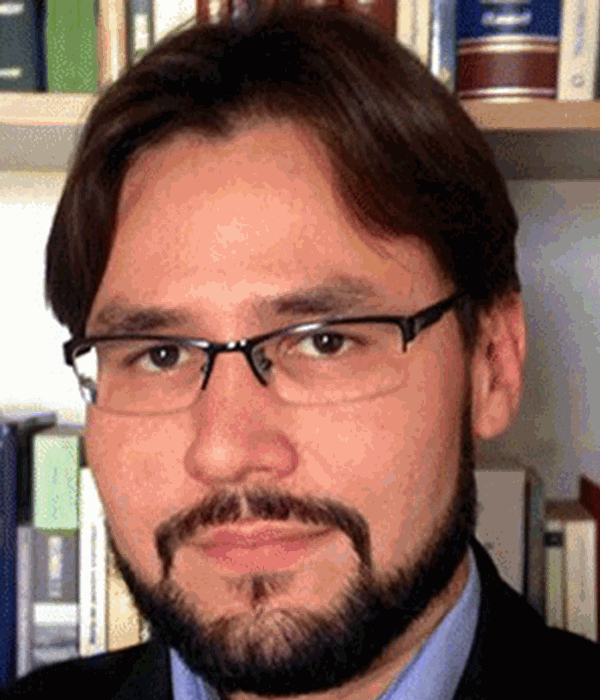 Raoni Rajão an associate professor in social studies of science & technology in the Department of Production Engineering at the Universidade Federal de Minas Gerais (UFMG), Brazil. He also teaches in the graduate programs of Production Engineering and Environmental Analysis at UFMG. He is also visiting professor at Lancaster University. His research interests cross postcolonial studies, environmental politics and science studies with a particular focus on climate and forest policies in Brazil.
Raoni Rajão an associate professor in social studies of science & technology in the Department of Production Engineering at the Universidade Federal de Minas Gerais (UFMG), Brazil. He also teaches in the graduate programs of Production Engineering and Environmental Analysis at UFMG. He is also visiting professor at Lancaster University. His research interests cross postcolonial studies, environmental politics and science studies with a particular focus on climate and forest policies in Brazil.
He has collaborated with different agencies of the United Nations, the World Bank and the German Technical Cooperation (GIZ), and has advised senior officials from the State Government of Minas Gerais and the Brazilian Federal Government in the creation of environmental policy. His research has featured in journals such as Global Environmental Politics, Theory, Culture & Society, and Science, the journal of AAAS. He has also edited a special issue of Science, Technology & Human Values.
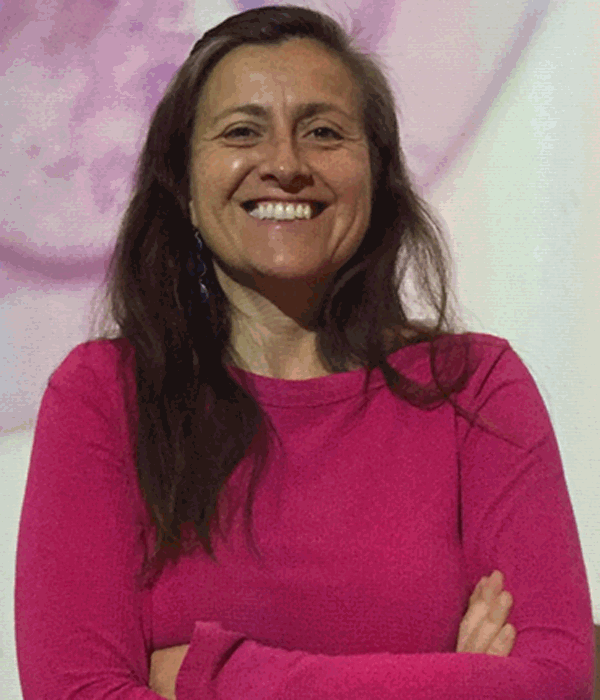 Sandra P. González-Santos (México, 1974) is a part-time researcher in the Bioethics Department at the Universidad Anáhuac, she also lectures at the Universidad Iberoamericana in the Critical Gender Studies graduate program and in the Media Studies MPhil programme, as well as in the Bioethics Program of the Universidad Nacional Autónoma de México (UNAM). She has explored the processes by which people and societies make sense of, appropriate, and transform biotechnologies related to reproduction. She focuses on how with and through these technologies and the systems they create and are part of, we are creating new social orders. Her recently published book, A Portrait of Assisted Reproduction in Mexico: Scientific, Political, and Cultural Interactions (Palgrave, 2020), looks at the development of assisted reproduction services in Mexico, a story that goes back to the 1930s and travels up to the 2010s. She is also interested in experimenting with different art forms as a way of creating critical and creative pedagogic tools to be used in her teaching activities and has worked at the National Arts Center as a coordinator of interdisciplinary research groups.
Sandra P. González-Santos (México, 1974) is a part-time researcher in the Bioethics Department at the Universidad Anáhuac, she also lectures at the Universidad Iberoamericana in the Critical Gender Studies graduate program and in the Media Studies MPhil programme, as well as in the Bioethics Program of the Universidad Nacional Autónoma de México (UNAM). She has explored the processes by which people and societies make sense of, appropriate, and transform biotechnologies related to reproduction. She focuses on how with and through these technologies and the systems they create and are part of, we are creating new social orders. Her recently published book, A Portrait of Assisted Reproduction in Mexico: Scientific, Political, and Cultural Interactions (Palgrave, 2020), looks at the development of assisted reproduction services in Mexico, a story that goes back to the 1930s and travels up to the 2010s. She is also interested in experimenting with different art forms as a way of creating critical and creative pedagogic tools to be used in her teaching activities and has worked at the National Arts Center as a coordinator of interdisciplinary research groups.
 Mauricio Nieto-Olarte has a Doctorate in the History of Sciences from London University, and he is currently Titular Professor at the Department of History at Universidad de los Andes, Bogota, Colombia. As of February 1st 2020, he is also Dean of the Social Sciences Faculty, University of Los Andes. His research has focused on the relationship between science, technology and politics in imperial and colonial contexts. He has worked on European expeditions to the New World, on natural history, cartography and navigation in order to explain the role of such techno-scientific practices in the political and cultural history of the Hispano-American world from the sixteenth to the nineteenth century. He has been teaching courses and seminars in history and sociology of science in different universities in Latin America and Colombia for the past 20 years.
Mauricio Nieto-Olarte has a Doctorate in the History of Sciences from London University, and he is currently Titular Professor at the Department of History at Universidad de los Andes, Bogota, Colombia. As of February 1st 2020, he is also Dean of the Social Sciences Faculty, University of Los Andes. His research has focused on the relationship between science, technology and politics in imperial and colonial contexts. He has worked on European expeditions to the New World, on natural history, cartography and navigation in order to explain the role of such techno-scientific practices in the political and cultural history of the Hispano-American world from the sixteenth to the nineteenth century. He has been teaching courses and seminars in history and sociology of science in different universities in Latin America and Colombia for the past 20 years.
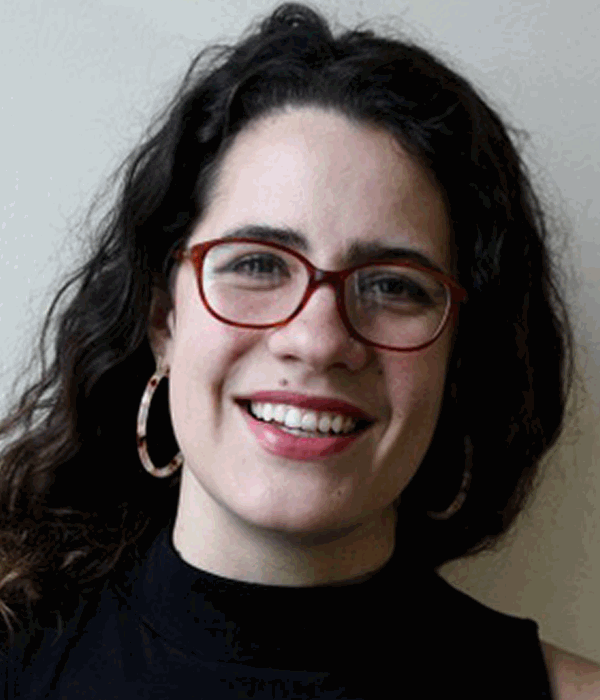 Raquel Velho is Assistant Professor in the Science and Technology Studies Department at Rensselaer Polytechnic Institute (USA) and associate researcher at the Department of Science & Technology Policy at Unicamp (Brazil). She holds a PhD in Science and Technology Studies from University College London (UK), a MS in Science, Technology, Medicine and Society from Imperial College London (UK), and a BA in Sociology from Université de Nantes (France).
Raquel Velho is Assistant Professor in the Science and Technology Studies Department at Rensselaer Polytechnic Institute (USA) and associate researcher at the Department of Science & Technology Policy at Unicamp (Brazil). She holds a PhD in Science and Technology Studies from University College London (UK), a MS in Science, Technology, Medicine and Society from Imperial College London (UK), and a BA in Sociology from Université de Nantes (France).
Raquel has published articles in English and Portuguese, on the topics of transit accessibility, disability, and infrastructure building, and works at the intersection of disability studies and science and technology studies. Her work has been published in the International Journal of Transportation Science & Technology, Social Inclusion, among others. She is member of the Editorial Board of Alter-European Journal of Disability Studies. In Tapuya's Vol 2, you will find the cluster she co-edited with collaborator Sebastián Ureta (Chile) on the topic of infrastructures, repair, and ruins in Latin America.
Book Review Editors
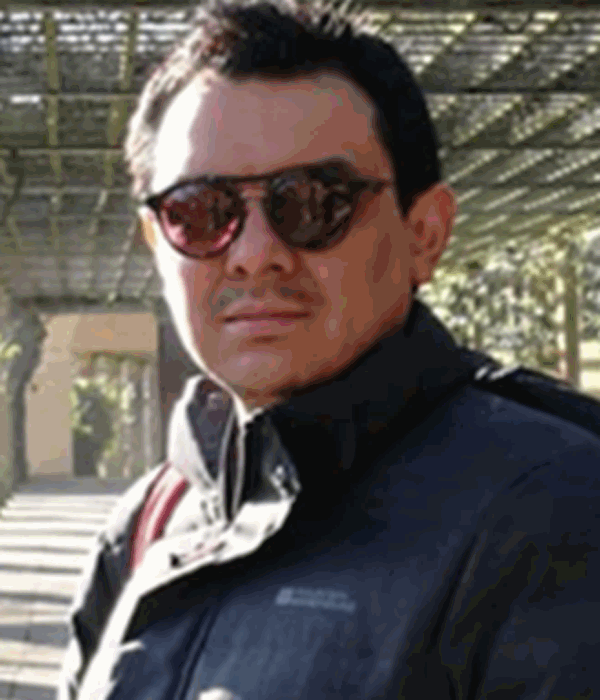 Víctor Ávila-Torres is a PhD candidate at the University of York, UK. His main interests lie within the subjective relation that individuals hold with technologies, and how this relationship mediates the experience of the self in the world. His thesis is about how our relationship and attachment to music is shaped by technologies and affects. It includes elements from cultural sociology, consumer culture, valuation studies and practice theory. His background is also in media and communication studies. Currently, while preparing his submission, he works as convenor at the Science & Technology Unit (SATSU) at York, as well as research intern for the project Voices in Partnership – Interactional practices of decision-making during childbirth. He is also book review editor for the journal Information, Communication and Society, and reviewer for New Media & Society.
Víctor Ávila-Torres is a PhD candidate at the University of York, UK. His main interests lie within the subjective relation that individuals hold with technologies, and how this relationship mediates the experience of the self in the world. His thesis is about how our relationship and attachment to music is shaped by technologies and affects. It includes elements from cultural sociology, consumer culture, valuation studies and practice theory. His background is also in media and communication studies. Currently, while preparing his submission, he works as convenor at the Science & Technology Unit (SATSU) at York, as well as research intern for the project Voices in Partnership – Interactional practices of decision-making during childbirth. He is also book review editor for the journal Information, Communication and Society, and reviewer for New Media & Society.
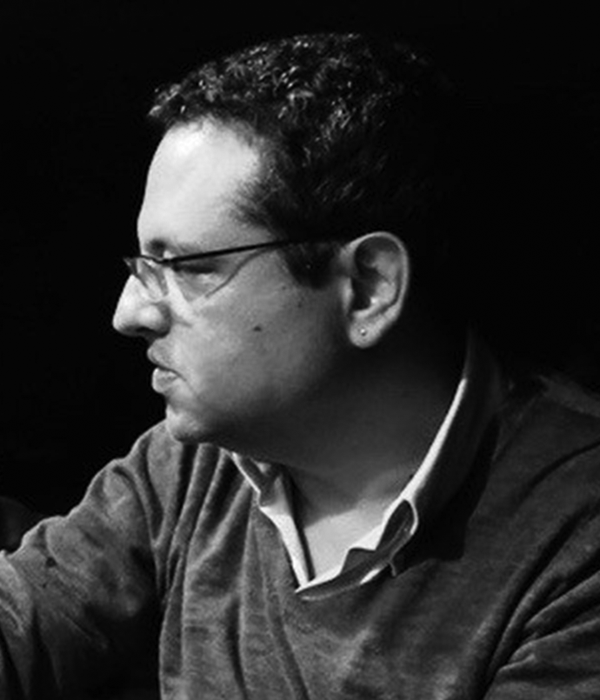 Alexis De Greiff earned a BA and MSc in Theoretical Physics in Colombia, and received his PhD in History of Science from the Imperial College, University of London (2000). He is Associate Professor at the Sociology Department, Universidad Nacional de Colombia, where he teaches History and Sociology of Science and Technology; History of Twentieth-century Colombia; and History of Science, Technology and Imperialism.
Alexis De Greiff earned a BA and MSc in Theoretical Physics in Colombia, and received his PhD in History of Science from the Imperial College, University of London (2000). He is Associate Professor at the Sociology Department, Universidad Nacional de Colombia, where he teaches History and Sociology of Science and Technology; History of Twentieth-century Colombia; and History of Science, Technology and Imperialism.
He has been a Fulbright Scholar (2019) and visiting researcher at the Humboldt Universität (Berlin), Universitá degli Studi di Milano (Milan) and the City University of New York (CUNY). He has written on the history of the relationship between discourses and practices of “science for development” institutions; history of physics in the “Third World”; historiography of infrastructure; and public understanding of science. The Latin American Society of Science, Technology and Society (ESOCITE) awarded him the “Amilcar Herrera Prize” in 2014 for the best contribution to the field.
He also served as Vice-Rector of the National University of Colombia, Deputy Director of the National Department of Science, Technology and Innovation (COLCIENCIAS) and Director of the Network of Libraries of the Colombian Central Bank. http://unal.academia.edu/AlexisDeGreiffA
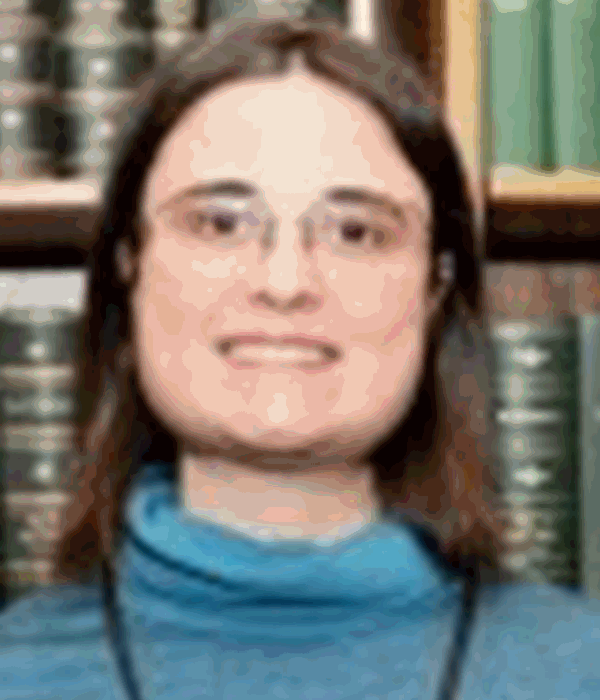 Marina Fontolan is a Brazilian PhD candidate interested in all things technology. Their dissertation is on the role of video game localization in the industry. In particular, they are interested in noticing the role players have in requiring and demanding both their games to be localized and the localization to be changed. They have a B.S. in History and a M.S. in Cultural History. They truly believe that Latin America is an amazing, but little known region of the world. Their role as a Book Review Editor in Tapuya is to help disclose the complex and amazing research done there.
Marina Fontolan is a Brazilian PhD candidate interested in all things technology. Their dissertation is on the role of video game localization in the industry. In particular, they are interested in noticing the role players have in requiring and demanding both their games to be localized and the localization to be changed. They have a B.S. in History and a M.S. in Cultural History. They truly believe that Latin America is an amazing, but little known region of the world. Their role as a Book Review Editor in Tapuya is to help disclose the complex and amazing research done there.
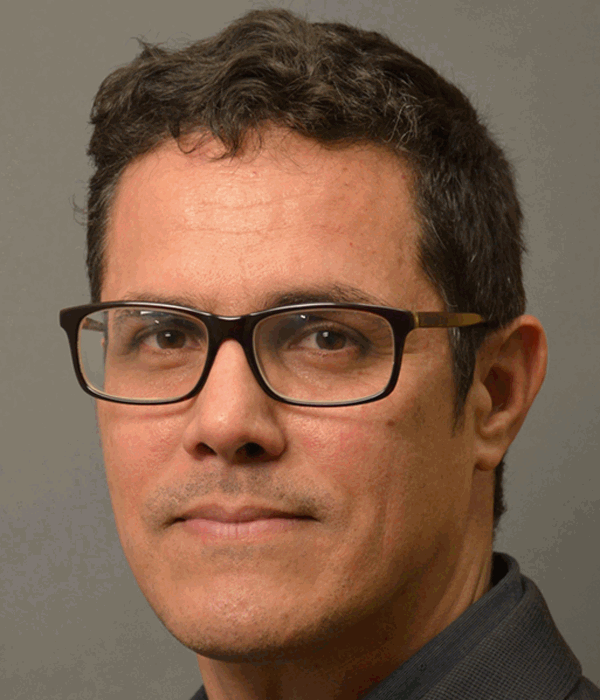 Reinaldo Funes-Monzote is Director of the Geo-Historical Research Program at the Antonio Núñez Jiménez Foundation (Cuba) and professor of History at the University of Havana. His book De bosque a sabana. Azúcar, deforestación y medioambiente en Cuba, 1492--1926, received the Premio de Pensamiento Caribeño in 2003 (category of environmental thinking) by the UNESCO, the Estado de Quintana Roo and Siglo XXI. A new version translated into the English was published in 2008 by UNC Press with the title From Rainforest to Cane Field in Cuba. An Environmental History since 1492 (Elinor Melville Prize). He is author of El despertar del asociacionismo científico en Cuba, 1876--1920 (CSIC, Madrid, 2004) and editor of Naturaleza en declive. Miradas a la historia ambiental de América Latina y el Caribe, (Valencia, Spain, 2008). In 2019 he received the Casa de las Americas Award with the book Nuestro viaje a la Luna. La idea de la transformación de la naturaleza en Cuba durante la Guerra Fría. His research focuses on Cuban and Caribbean Environmental History, and the History of Science and Technology in Cuba. He is visiting professor at Yale University, 2015--2020, and President of the Cuban Society for the History of Science and Technology (since 2019).
Reinaldo Funes-Monzote is Director of the Geo-Historical Research Program at the Antonio Núñez Jiménez Foundation (Cuba) and professor of History at the University of Havana. His book De bosque a sabana. Azúcar, deforestación y medioambiente en Cuba, 1492--1926, received the Premio de Pensamiento Caribeño in 2003 (category of environmental thinking) by the UNESCO, the Estado de Quintana Roo and Siglo XXI. A new version translated into the English was published in 2008 by UNC Press with the title From Rainforest to Cane Field in Cuba. An Environmental History since 1492 (Elinor Melville Prize). He is author of El despertar del asociacionismo científico en Cuba, 1876--1920 (CSIC, Madrid, 2004) and editor of Naturaleza en declive. Miradas a la historia ambiental de América Latina y el Caribe, (Valencia, Spain, 2008). In 2019 he received the Casa de las Americas Award with the book Nuestro viaje a la Luna. La idea de la transformación de la naturaleza en Cuba durante la Guerra Fría. His research focuses on Cuban and Caribbean Environmental History, and the History of Science and Technology in Cuba. He is visiting professor at Yale University, 2015--2020, and President of the Cuban Society for the History of Science and Technology (since 2019).
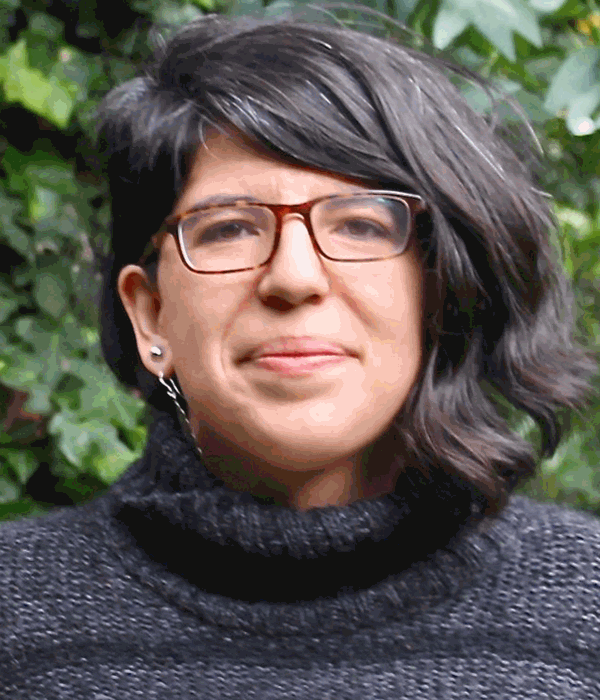 Nathalia Hernández-Vidal is Visiting Faculty of Sociology at Oxford College of Emory University, and a PhD Candidate at Loyola University Chicago. Her work is focused on understanding how technology and law produce ethnoracial, gender, and class inequalities, and the role that popular education and alter socio-epistemes generated in, from, and for social movements have in challenging prominent technoscientific regimes. Her current project investigates the politics of seeds, land, and territory in Colombia. The study examines how seed movements’ epistemic discourses and social practices create alternative worlds of food and agriculture, which are [nevertheless] still traversed by particular processes of ethnoracialization and gender production and re-production. Her work has been published in La Revista Colombiana de Antropología, Tapuya, and Engaging Science, Technology and Society (forthcoming). She also collaborates with La Red Nacional de Semillas Libres de Colombia/The National Network of Free Seeds of Colombia as a researcher.
Nathalia Hernández-Vidal is Visiting Faculty of Sociology at Oxford College of Emory University, and a PhD Candidate at Loyola University Chicago. Her work is focused on understanding how technology and law produce ethnoracial, gender, and class inequalities, and the role that popular education and alter socio-epistemes generated in, from, and for social movements have in challenging prominent technoscientific regimes. Her current project investigates the politics of seeds, land, and territory in Colombia. The study examines how seed movements’ epistemic discourses and social practices create alternative worlds of food and agriculture, which are [nevertheless] still traversed by particular processes of ethnoracialization and gender production and re-production. Her work has been published in La Revista Colombiana de Antropología, Tapuya, and Engaging Science, Technology and Society (forthcoming). She also collaborates with La Red Nacional de Semillas Libres de Colombia/The National Network of Free Seeds of Colombia as a researcher.
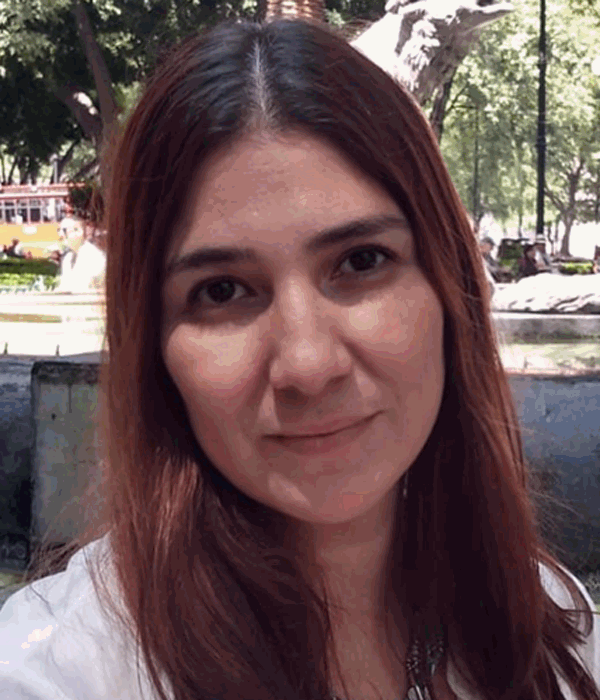 Carolina Peláez-González is an Associate Professor at the Department of Social Relations at Universidad Autónoma Metropolitana, campus Xochimilco (UAM-X) in Mexico city. She studied Sociology (Universidad Autónoma Metropolitana, campus Azcapotzalco), Gender Studies (MA, Programa Interdisciplinario de Estudios de Género, El Colegio de México) and Social Sciences (Phd, Centro de Estudios Sociológicos, El Colegio de México). She is a member of the National Researchers System, Candidate level, since 2018. Her research has mainly focused on the sociocultural, technological and economic conditions in fishing industrial communities from the perspective of Actor-Network Theory. She is currently researching the role of gender relations in the constitution of maritime culture in Pacific Northwestern Mexico with a particular emphasis on artifacts and the relation between body, emotion and sense in the processes of knowledge acquisition in every day work. She is also co-responsible in a UAM-project about young people and precarious conditions, specifically the role of the senses and emotions in the learning process of young doctors. Carolina has published various chapters for books at prestigious Mexican universities, and editorials for El Colegio de México and Instituto de Investigaciones Sociales-UNAM.
Carolina Peláez-González is an Associate Professor at the Department of Social Relations at Universidad Autónoma Metropolitana, campus Xochimilco (UAM-X) in Mexico city. She studied Sociology (Universidad Autónoma Metropolitana, campus Azcapotzalco), Gender Studies (MA, Programa Interdisciplinario de Estudios de Género, El Colegio de México) and Social Sciences (Phd, Centro de Estudios Sociológicos, El Colegio de México). She is a member of the National Researchers System, Candidate level, since 2018. Her research has mainly focused on the sociocultural, technological and economic conditions in fishing industrial communities from the perspective of Actor-Network Theory. She is currently researching the role of gender relations in the constitution of maritime culture in Pacific Northwestern Mexico with a particular emphasis on artifacts and the relation between body, emotion and sense in the processes of knowledge acquisition in every day work. She is also co-responsible in a UAM-project about young people and precarious conditions, specifically the role of the senses and emotions in the learning process of young doctors. Carolina has published various chapters for books at prestigious Mexican universities, and editorials for El Colegio de México and Instituto de Investigaciones Sociales-UNAM.
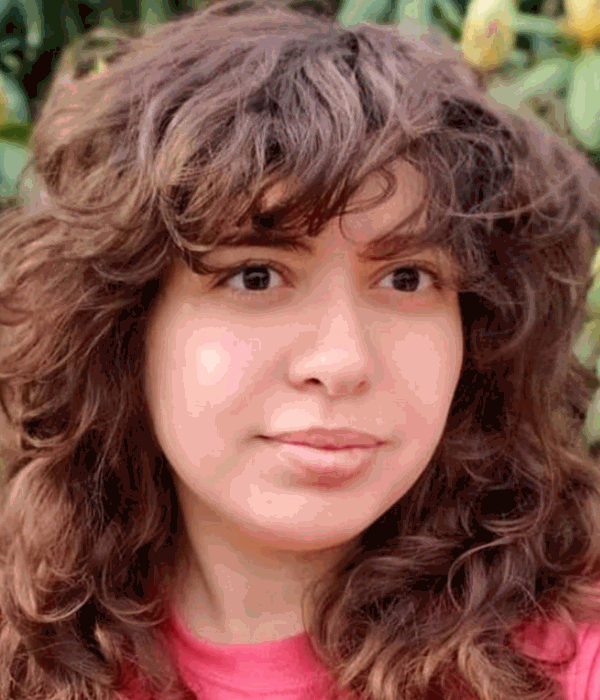 Hined A. Rafeh is a Syrian-Venezuelan American and PhD candidate in the RPI STS program, and her research explores genetic testing, technoidentities and critical scientific engagement. Her dissertation is on the regulation and commercialization of genetic health tests, and how genetic tests construct and are shaped by notions of risk, diagnosis, and identity.
Hined A. Rafeh is a Syrian-Venezuelan American and PhD candidate in the RPI STS program, and her research explores genetic testing, technoidentities and critical scientific engagement. Her dissertation is on the regulation and commercialization of genetic health tests, and how genetic tests construct and are shaped by notions of risk, diagnosis, and identity.
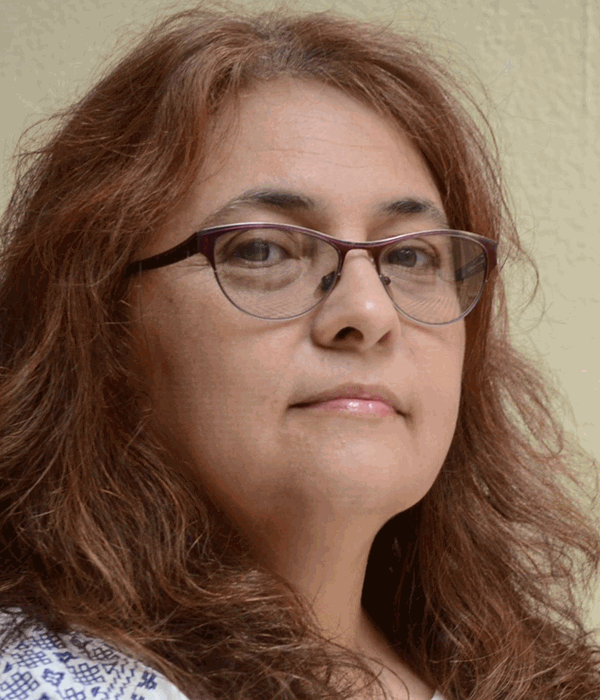 Claudia Salomon Tarquini holds a doctorate in History from the National University of Central Buenos Aires (UNICEN, Argentina), and works as an independent researcher at CONICET (National Scientific and Technical Research Council, Argentina), and as a professor at the National University of La Pampa, Argentina. She has been a Visiting Fellow at Yale University and, as a Fulbright scholar, at the State University of New York. She is the Managing Editor at Quinto Sol, a history journal; Associate Editor in Culture, Power and Education (Indigeneity and Interculturality) at the Journal of Intercultural Studies, and Book Review Editor in Tapuya: Latin American Science, Technology and Society, these two both published by Taylor & Francis. She has been doing research on regional history, identities, alterities and history of native peoples (Pampa and Patagonia regions, nineteenth and twentieth centuries). Her latest research is devoted to the conditions of production and circulation of knowledge concerning indigenous peoples in several countries.
Claudia Salomon Tarquini holds a doctorate in History from the National University of Central Buenos Aires (UNICEN, Argentina), and works as an independent researcher at CONICET (National Scientific and Technical Research Council, Argentina), and as a professor at the National University of La Pampa, Argentina. She has been a Visiting Fellow at Yale University and, as a Fulbright scholar, at the State University of New York. She is the Managing Editor at Quinto Sol, a history journal; Associate Editor in Culture, Power and Education (Indigeneity and Interculturality) at the Journal of Intercultural Studies, and Book Review Editor in Tapuya: Latin American Science, Technology and Society, these two both published by Taylor & Francis. She has been doing research on regional history, identities, alterities and history of native peoples (Pampa and Patagonia regions, nineteenth and twentieth centuries). Her latest research is devoted to the conditions of production and circulation of knowledge concerning indigenous peoples in several countries.
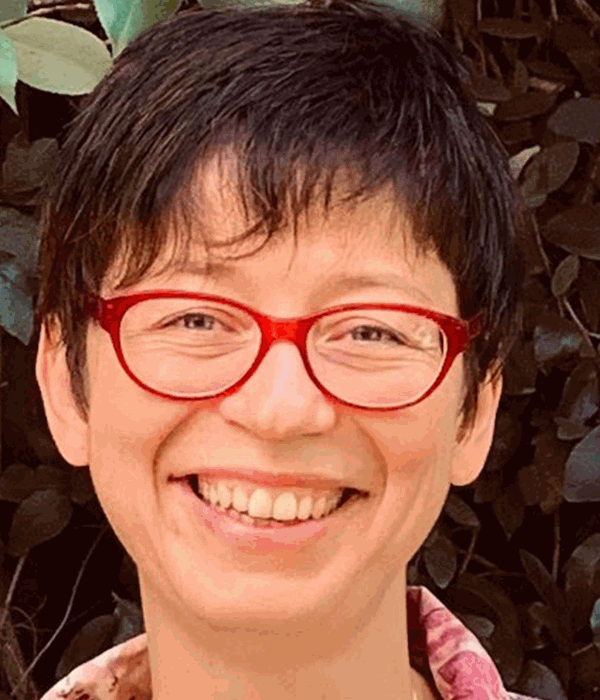 Julia Sushytska (PhD, Philosophy, SUNY Stony Brook) is an Assistant Professor in Comparative Studies in Literature and Culture at Occidental College and teaches philosophy courses at Whittier College. Her areas of expertise are Ancient Greek and twentieth-century European and Eastern European philosophy. In 2015–2016 she was a Visiting Professor at the Centre de Recherches en Philosophie Allemande et Contemporaine at the University of Strasbourg. Her research focuses on metics, i.e. those who find or place themselves in-between major cultures, languages, or ethnicities. Julia is finishing a book manuscript that bridges the texts of Heraclitus, Gilles Deleuze, Gloria Anzaldúa, and a Soviet-era Georgian philosopher, Merab Mamardashvili. She is also working on an annotated scholarly translation of Mamardashvili’s book on Proust.
Julia Sushytska (PhD, Philosophy, SUNY Stony Brook) is an Assistant Professor in Comparative Studies in Literature and Culture at Occidental College and teaches philosophy courses at Whittier College. Her areas of expertise are Ancient Greek and twentieth-century European and Eastern European philosophy. In 2015–2016 she was a Visiting Professor at the Centre de Recherches en Philosophie Allemande et Contemporaine at the University of Strasbourg. Her research focuses on metics, i.e. those who find or place themselves in-between major cultures, languages, or ethnicities. Julia is finishing a book manuscript that bridges the texts of Heraclitus, Gilles Deleuze, Gloria Anzaldúa, and a Soviet-era Georgian philosopher, Merab Mamardashvili. She is also working on an annotated scholarly translation of Mamardashvili’s book on Proust.
Member of Advisory Board
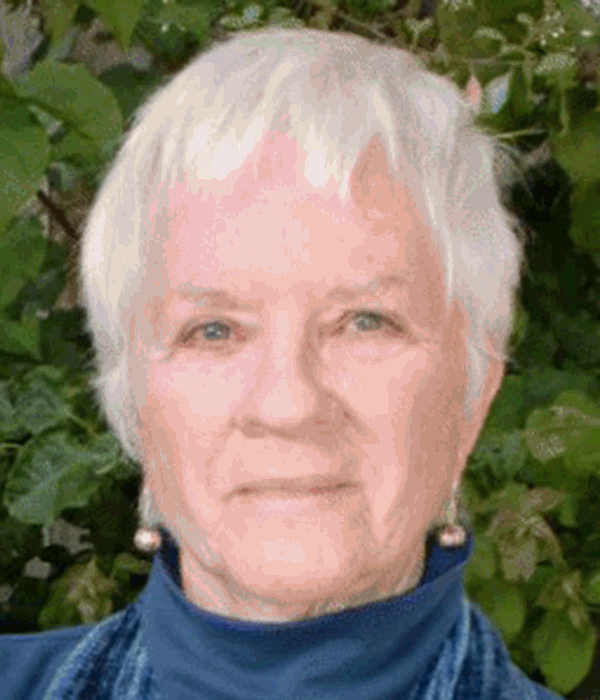 Sandra Harding is a Distinguished Research Professor in the Graduate School of Education and Information Studies, and in the Gender Studies Department, at the University of California, Los Angeles. She taught for two decades in the Philosophy Department and directed the Women’s Studies Program at the University of Delaware before moving to UCLA in 1996. She directed the UCLA Center for the Study of Women 1996–2000, and co-edited the journal Signs: Journal of Women in Culture and Society 2000–2005. In 2013 she was awarded the John Desmond Bernal Award by the Society for the Social Studies of Science (4S) for distinguished contributions to the field. She is the author or editor of seventeen books and special journal issues including Objectivity and Diversity: Another Logic of Scientific Research 2015, The Postcolonial Science and Technology Studies Reader (Ed) 2011, and Sciences From Below: Feminism, Postcolonialisms, and Modernities, 2008.
Sandra Harding is a Distinguished Research Professor in the Graduate School of Education and Information Studies, and in the Gender Studies Department, at the University of California, Los Angeles. She taught for two decades in the Philosophy Department and directed the Women’s Studies Program at the University of Delaware before moving to UCLA in 1996. She directed the UCLA Center for the Study of Women 1996–2000, and co-edited the journal Signs: Journal of Women in Culture and Society 2000–2005. In 2013 she was awarded the John Desmond Bernal Award by the Society for the Social Studies of Science (4S) for distinguished contributions to the field. She is the author or editor of seventeen books and special journal issues including Objectivity and Diversity: Another Logic of Scientific Research 2015, The Postcolonial Science and Technology Studies Reader (Ed) 2011, and Sciences From Below: Feminism, Postcolonialisms, and Modernities, 2008.
Managing Editor Latin America
 Luisa Fernanda Grijalva-Maza is professor and researcher in the International Relations Department at Universidad Popular Autónoma del Estado de Puebla (UPAEP), Mexico. She has a PhD in Theories and Creation of Culture from Universidad de las Américas Puebla (UDLAP), Mexico. She also holds a MA in North American Studies and a BA in International Relations. Her research focuses on Deleuzian repetition, its relation with melancholic states and its transformative potential in territorialized binary conceptualizations such as the human animal/non-human animal, particularly in Gothic productions. She has published several chapters in books such as Más Allá del Texto: Cultura Digital y Nuevas Tecnologías, and La Creación Hoy: Perspectivas Posthumanistas.
Luisa Fernanda Grijalva-Maza is professor and researcher in the International Relations Department at Universidad Popular Autónoma del Estado de Puebla (UPAEP), Mexico. She has a PhD in Theories and Creation of Culture from Universidad de las Américas Puebla (UDLAP), Mexico. She also holds a MA in North American Studies and a BA in International Relations. Her research focuses on Deleuzian repetition, its relation with melancholic states and its transformative potential in territorialized binary conceptualizations such as the human animal/non-human animal, particularly in Gothic productions. She has published several chapters in books such as Más Allá del Texto: Cultura Digital y Nuevas Tecnologías, and La Creación Hoy: Perspectivas Posthumanistas.
Assistant Managing Editor
 Daniela Moyano graduated with a Bachelor's Degree in International Relations from the Universidad de las Américas Puebla, Mexico (UDLAP). She began her academic career by working on various research projects, such as The national and global repositioning of Mexican cities in the face of transnational problems: energy, environment, migration, citizen security and culture, under the guidance of Dr. Marianne Marchand. Although her focus was on gender studies and migration, here she found a new interest in the study of STS with a focus on environmental education.
Daniela Moyano graduated with a Bachelor's Degree in International Relations from the Universidad de las Américas Puebla, Mexico (UDLAP). She began her academic career by working on various research projects, such as The national and global repositioning of Mexican cities in the face of transnational problems: energy, environment, migration, citizen security and culture, under the guidance of Dr. Marianne Marchand. Although her focus was on gender studies and migration, here she found a new interest in the study of STS with a focus on environmental education.
Site Manager Tapuya.la
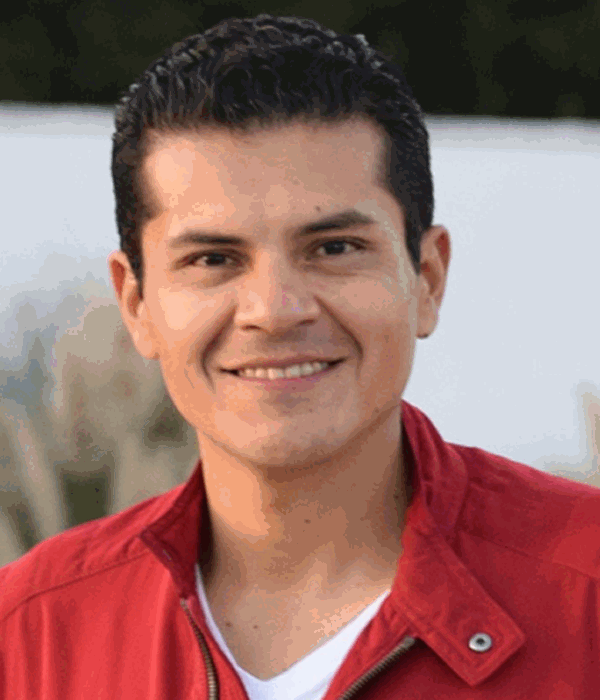 Edmundo Meza Rodríguez holds a PhD in Theories and Creation of Culture from Universidad de las Américas Puebla (UDLAP), Mexico. He has taught different courses at undergraduate and graduate levels on topics ranging from economic, social, political and cultural analysis of Mexico and Latin America, to social policy, economy, theories of culture and communication. He has participated in different research projects articulating works about cities, globalization, education, migration, ICTs, Social Media and culture. As a result he has published several reports, articles and book chapters.
Edmundo Meza Rodríguez holds a PhD in Theories and Creation of Culture from Universidad de las Américas Puebla (UDLAP), Mexico. He has taught different courses at undergraduate and graduate levels on topics ranging from economic, social, political and cultural analysis of Mexico and Latin America, to social policy, economy, theories of culture and communication. He has participated in different research projects articulating works about cities, globalization, education, migration, ICTs, Social Media and culture. As a result he has published several reports, articles and book chapters.
